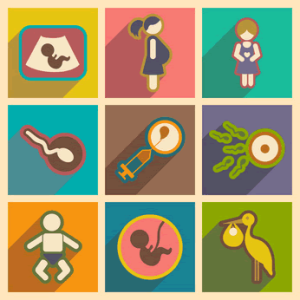Infertility
 The word fertility describes the ability of living beings to reproduce.
The word fertility describes the ability of living beings to reproduce.
The desire to become parents, of maternity and pregnancy for a woman and of paternity for a man, is often the natural consequence of a peaceful, solid relationship that may lead a couple to the creation of a family.
Conceiving is not always an easy task to accomplish, as more and more young couples find themselves facing the challenge of sterility, i.e. the woman not being able to conceive after at least a year of non-protected intercourse.
This is a common phenomenon that according to the World Health Organization (WHO) affects around 15-20% of couples in developed and industrialized countries. In 35% of these cases, infertility is connected to a female factor, in 30% to a male factor, in 20% of cases to problems in both partners, while the remaining 15% of cases suffer from “unexplained infertility.”
 Female infertility depends mainly on cervical, utero-Fallopian tube, ovulatory, immunological, genetic, endometrial, and inflammatory factors.
Female infertility depends mainly on cervical, utero-Fallopian tube, ovulatory, immunological, genetic, endometrial, and inflammatory factors.
Male infertility is mainly caused by: chronic infections, (such as prostatitis), varicocele, cryptorchidism, hypogonadism, obstructed seminal flow, anti-sperm antibodies, erectile-ejaculatory dysfunctions, and genetic causes.
Before visiting a Medical Center specialized in Fertility and Reproduction, it is necessary to run preliminary tests and fertility tests.

